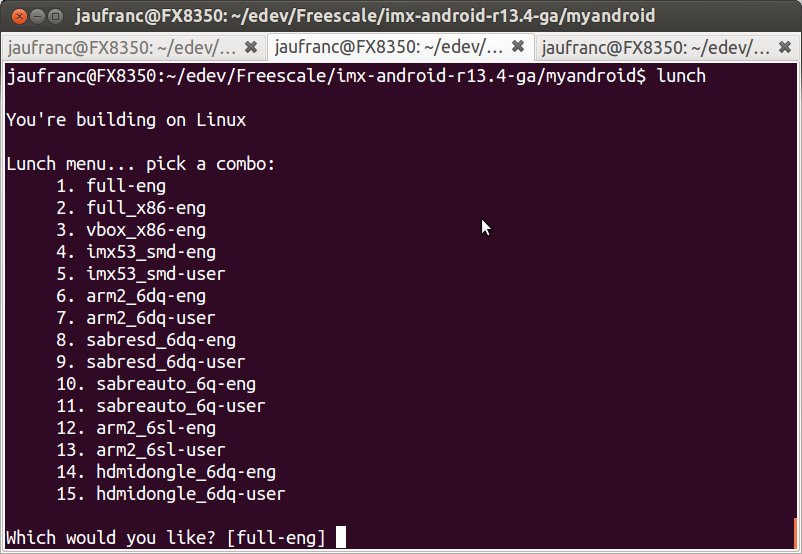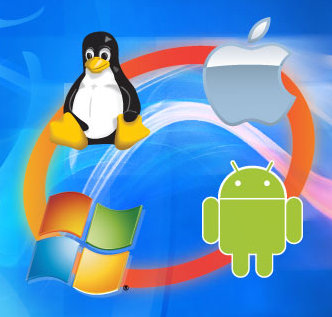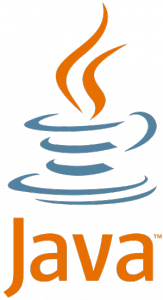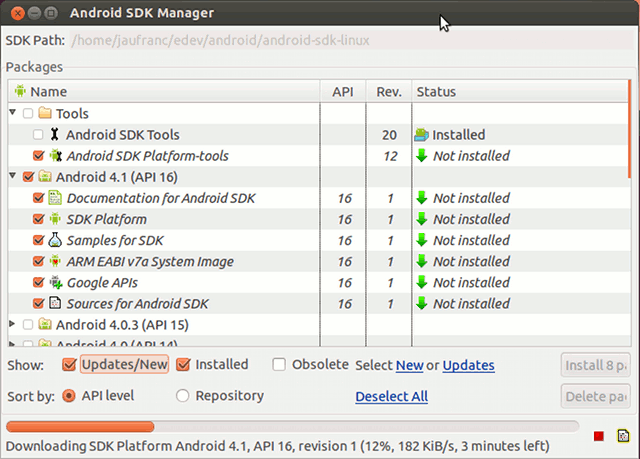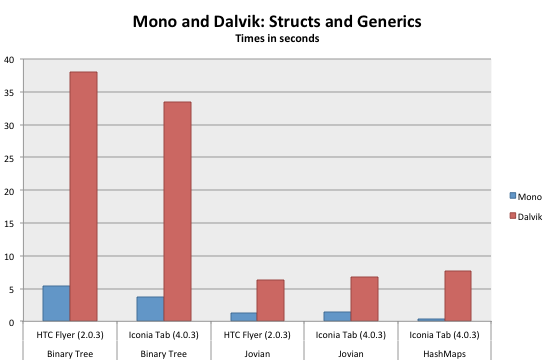This release includes Linux Kernel 3.12 (baseline), Linux Kernel 3.10.20 (LSK), Android 4.4 for the first time, and Ubuntu Linaro 13.11 (still based on Raring). Beside Android Kit Kat support, other noticeable updates include initial documentation for LAVA, and further work on ARMv8 support. Here are the highlights of this release: Android Engineering Android 64-/32-bit updated to 4.4 KitKat Fastboot/UEFI – Created Fastboot app design Builds and Baselines Linaro Stable Kernel 3.10.20-2013.11 released – Includes an updated big.LITTLE MP patchset Linux Linaro 3.12-2013.11 released: gator version 5.16 (same version as in 13.10 release) updated big-LITTLE-pmu, iks, iks-cpufreq, and interactive-gov-updates topics from ARM LT updated basic Capri board support from Broadcom LT (generic phy support for USB, watchdog, updated bcm_defconfig) updated big endian topic updated topic to support K3V2 board from Hisilicon LT updated Versatile Express patches from ARM LT vexpress64 support (updated FVP Base model files, added support for FVP […]
Linaro 13.10 Release with Linux Kernel 3.12 and Android 4.3
Linaro has just posted a blog entry to announced Linaro 13.10 was available for download. This is normally supposed to occur on the last Thursday of the month, but it’s possible the release occurred on scheduled, and the blog post was late, or it may have been delayed because of Linaro Connect US 2013. You can access a summary of the event together with slides and videos of the sessions and keynotes when available. This release includes the Linux Kernel 3.12-rc5 (staging), Kernel 3.10.14 (LSK), Android 4.3.1, and Ubuntu Linaro 13.10 (still based on Raring). Android has been ported and updated to 4.3.1 from AOSP, and the OS can now boot using UEFI. More work has been done on ARM 64-bit (aka ARMv8 or Aarch64) for Android, the Linux kernel, and tools such as uprobes, o-profile, and ftrace. Some new hardware platforms I may have missed before have popped up […]
U-boot, Linux Kernel, and Android Patches for Freescale i.MX6 HDMI TV Dongles
We can now get some quad core Android mini PCs (e.g. Hi802, GK802) featuring Freescale i.MX6Q processor, Freescale has released full documentation and source code its development platforms, Hi802 / GK802 HDMI TV dongles are easily hackable, and there’s even an Ubuntu image for the devices. So it looks pretty good ,right? Well almost.. there are some patches and config for GK802 that have not been released by Richtechie, so we can’t modify the bootloader and Linux kernel. But this may change, as ARMTvTech forum user hste noticed some Freescale i.MX6 HDMI dongle patches om IMX Community website. Even though I’m not sure those are fully compatible with Hi802 / GK802, this could be a starting point. Today, I’ll provide the instructions to build u-boot, the linux kernel and Android ICS with those patches in a machine running Linux 12.04 64-bit. Patch Sets Descriptions There are two set of patches that […]
Collabora and Fluendo Release GStreamer SDK for Android
Collabora and Fluendo have recently announced the availability of GStreamer’s Software Development Kit for Android, which allows developers to create multimedia playback applications for Android smartphones and tablets using Gstreamer and the Android NDK.. The GStreamer SDK for Android targets Android 2.3.1 Gingerbread or higher (API Level 9 or greater). However, due to some of the restrictions of previous versions of Android, some features such as hardware acceleration are only available on Android 4.1 Jelly Bean (API Level 16 up). Normally, you’d need the GStreamer SDK which can be installed on Linux (Ubuntu, Fedora and Debian), Windows (XP/Vista/7/8) and Mac OS X (10.6 to 10.8). But for developing Android applications using Gstreamer, you don’t. What you do need first is a typical Android development environment with the latest Android SDK, the latest Android NDK, and optionally, but recommended, the Eclipse IDE with Android ADT and NDK plugins. Once everything is […]
Oracle releases JDK for Linux ARM (Soft-Float Only)
Oracle announced the availability of JDK 7 Update 6 which introduces a JDK for Linux on ARM v6 and v7 architecture. This JDK is aimed at “general purpose” ARM systems, such as ARM micro-servers and ARM development platforms. This new JDK for Linux on ARM is licensed under the Oracle Binary Code License, and can be downloaded at no cost for development and production use on general-purpose platforms. For embedded use such as an industrial controller or a kiosk appliance, a commercial license would be required. Here’s how Oracle summarizes the ARM Linux JDK features: This port provides 32-bit binary for ARMv6 and v7, with full support for Swing/AWT, both client (C1) and server (C2) compilers and runs on most Linux distributions. One caveat is that the current binary is softfloat ABI only, so it won’t work with (for example) the Raspbian distribution which uses the hardfloat ABI. We are […]
Installing Android SDK on Ubuntu 12.04
The official instructions to install Android SDK do not appear to be really up-to-date for Ubuntu 12.04, so I’ll post how I’ve installed the Android SDK and Eclipse on Ubuntu 12.04. First download and decompress Android SDK for Linux:
|
1 2 |
wget http://dl.google.com/android/android-sdk_r20-linux.tgz tar xzvf android-sdk_r20-linux.tgz |
on 64-bit Ubuntu:
|
1 |
apt-get install ia32-libs |
Sun Java is not part of Ubuntu packages anymore, so you’ll need to use openjdk instead
|
1 |
apt-get install openjdk-6-jdk |
Now install the SDK
|
1 2 |
cd android-sdk-linux/tools ./android sdk |
Android SDK Manager should show up. Use the default recommended packages and platforms, as well as any extra packages you may need, and click on Install x packages, accept all licenses and after installation is complete, the Android SDK is installed. Eclipse IDE is optional, but it’s the most widely used IDE to develop Android apps. You can install Eclipse as follows:
|
1 |
sudo apt-get install eclipse-jdt |
Once both Android packages and platforms, and eclipse are installed, start eclipse:
|
1 |
eclipse |
Then in the top menu, click on Help->Install […]
Detect Mobile Devices with WURFL in Websites and Mobile Apps
When designing a mobile application or webpage, you may want to know exactly to know what devices access your site or run your application for example to differentiate automatically between desktops, laptops, tablets and smartphones and provide a user interface which is appropriate for a given screen size. This can be achieved with WURFL (Wireless Universal Resource FiLe), a Device Description Repository (DDR). This software component maps HTTP Request headers to the profile of the HTTP client (Desktop, Mobile Device, Tablet, etc.) and provides a description of the capability of the device that made the request. WURFL repository is an xml file (wurfl.xml – Direct links to version 2.3.1: wurfl-2.3.1.zip or wurfl-2.3.1.xml.tar) containing the definition of thousand of devices which can be access using the WURFL APIs. Several large Internet companies such as Facebook and Google are using WURFL, and ScientiaMobile, the company behind WURFL, claims that it is the […]
Xamarin Ported Android to C#. Results: Massive Performance Improvements over Dalvik
Xamarin has been providing Mono, a C# framework that can work on Linux for some years, and more recently they have also launched Mono for Android and iOS so that you can write or re-use existing C# application on the most common samrtphone platforms. But their latest project “XobotOS Research Project” goes much further, as they have entirely re-written Android Dalvik engine based on Java with C#. Considering the million of lines of code in Android, they have found a tool to automatize the Java to C# conversion. This tool is an Eclipse plugin called is Sharpen, and Xamarin has made further improvements to Sharpen which are available on Github. They already have ported Android 2.x and Android 4.0 to C#. If you wonder why they would do that, look at the “benchmarks” below showing Mono vs. Dalvik implementation of Android for binary tree, jovian and hashtags. Since the company […]



